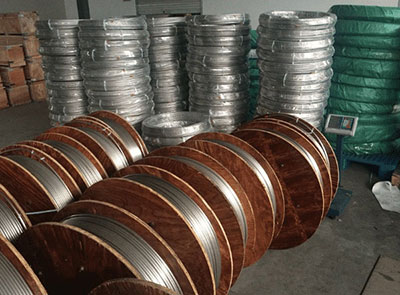What is a suitable material for the coiled tubing?
When it comes to coiled tubing, selecting the right material is of paramount importance. The material choice affects not only the performance and durability of the tubing but also its suitability for various applications. Among the plethora of options available, one material stands out as the epitome of excellence: stainless steel tubing coil.
Stainless steel tubing coil is a marvel of engineering, combining the strength of steel with the corrosion-resistant properties of chromium. The result is a versatile and durable material that finds its applications in a myriad of industries. But what makes stainless steel tubing coil the ideal choice for coiled tubing?
1. Corrosion Resistance: A Shield against Degradation
One of the primary reasons stainless steel tubing coil is preferred over other materials is its remarkable corrosion resistance. Stainless steel contains a minimum of 10.5% chromium, which forms a protective oxide layer on the surface, shielding it from oxidation and corrosion. This inherent property ensures that the tubing remains robust and reliable even in harsh environments, such as chemical processing plants or offshore drilling rigs.
2. Strength and Durability: A Backbone for Rugged Applications
Stainless steel tubing coil boasts impressive mechanical properties, making it suitable for demanding applications. It exhibits excellent tensile strength, allowing it to withstand high pressures and heavy loads. Whether it's transporting fluids under extreme conditions or supporting structural components, stainless steel tubing coil provides the required strength and durability.
3. Temperature Resistance: A Cool Head under Extreme Heat
Another feather in stainless steel tubing coil's cap is its ability to handle a wide temperature range. It maintains its structural integrity even when subjected to extreme heat or extreme cold, making it suitable for applications in industries like oil and gas, aerospace, and automotive. From geothermal drilling operations to heat exchangers, stainless steel tubing coil can handle the heat without breaking a sweat.
4. Versatility: Fit for Diverse Applications
The versatility of stainless steel tubing coil knows no bounds. Its exceptional properties make it an ideal choice for a wide range of applications across various industries. Some notable applications include:
Oil and Gas: Stainless steel tubing coil is used for downhole operations, well intervention, and hydraulic control lines, owing to its resistance to corrosion and high pressures.
Chemical Processing: It finds its place in chemical plants, where it is used for fluid transportation, heat exchangers, and reactor coils, thanks to its chemical resistance and durability.
Automotive: Stainless steel tubing coil is employed in fuel and brake lines, ensuring the safe and reliable flow of fluids in vehicles.
Renewable Energy: It plays a crucial role in solar water heating systems, geothermal installations, and heat recovery applications, where its temperature resistance and corrosion resistance are highly valued.








